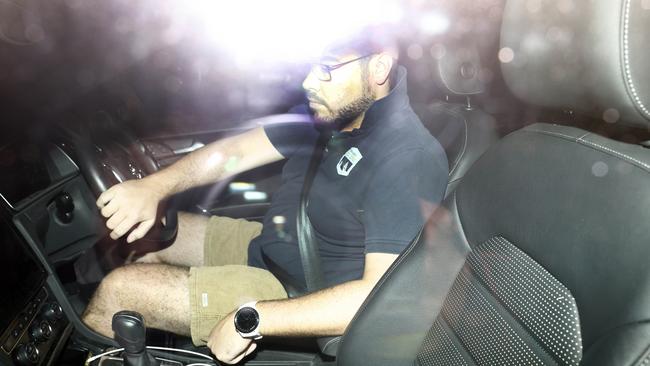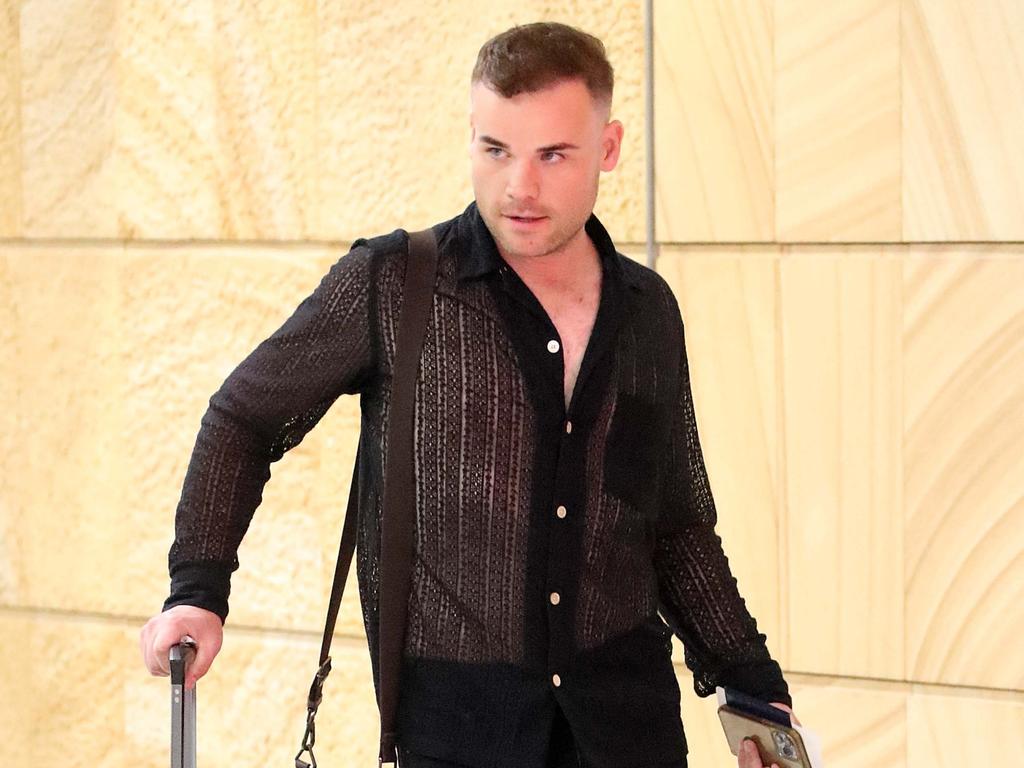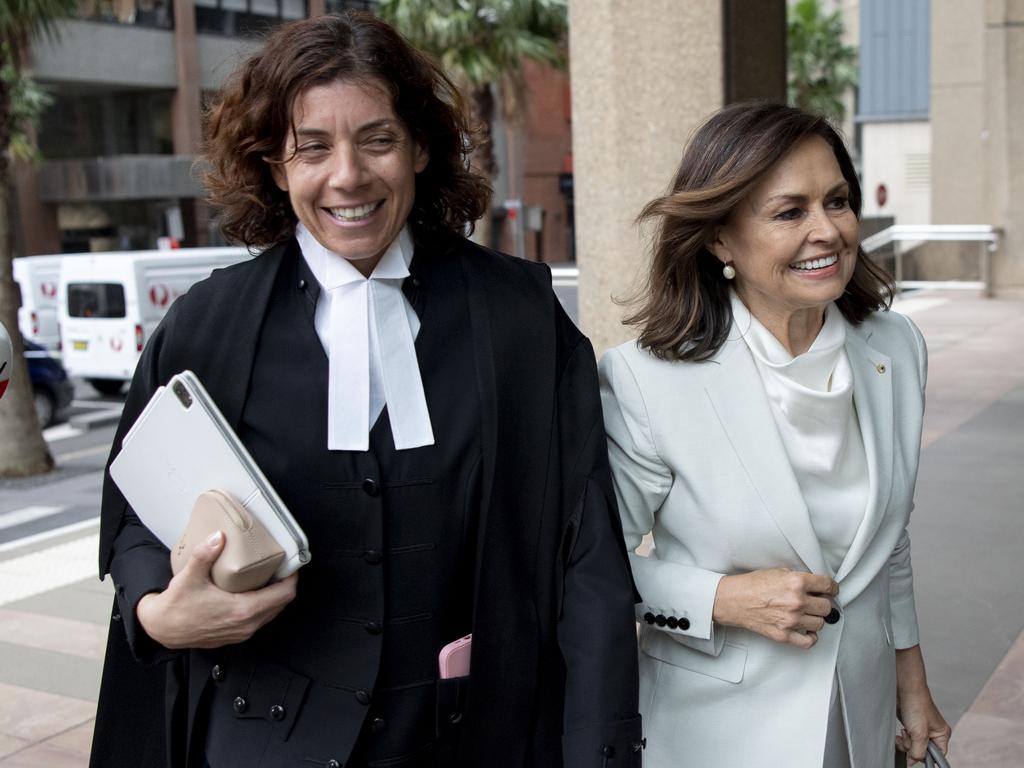The latest Bruce Lehrmann case twist, explained
Almost at the finish line, and the Lehrmann defamation Federal Court megatrial has blown up yet again. We break down who’s saying what, and why it all matters.

Justice Michael Lee was so close to the finish line.
On Thursday, Justice Lee was due to hand down his decision in the immense Federal Court defamation case where Bruce Lehrmann sued Network Ten and its presenter Lisa Wilkinson.
What’s Lehrmann suing for?
Lerhmann’s statement of claim says Ten and Wilkinson defamed him by making false imputations that he raped Brittany Higgins; continued to rape her after she woke up mid-rape and was crying and telling him to stop at least half a dozen times; that he crushed his leg against hers so forcefully as to cause a large bruise; and that after he finished raping her, he left her on a couch in a state of undress with her dress up around her waist.
What are the defences?
Ten and Wilkinson have two defences: that the claims are true, and that their report was covered by qualified privilege – that is, there’s a public interest in the matter and it was reasonable to publish its story.
Lehrmann denies any wrongdoing.
And now – a last minute twist, as Ten successfully argued it should be allowed to reopen its case and bring more evidence – in this case, an affidavit from a TV producer named Taylor Auerbach.
Who is Taylor Auerbach?
Auerbach is a former producer at Network Seven’s program Spotlight, who was tasked with getting Bruce Lehrmann to agree to an interview.
In the interview, aired in June 2023, Lerhmann said: “Let’s light some fires.”
Reporter Liam Bartlett asked: “Did you rape Brittany Higgins? “
Lehrmann: “No, I didn’t. It simply didn’t happen.”
Bartlett: “Did you have consensual sex?”
Lehrmann: “No.”
Lehrmann added: “Beware the man who’s got nothing to lose. There’s a bit more to come here.”
What was in the Spotlight story?
The story included previously unreleased material, including audio of Brittany Higgins’ conversations with journalists, including news.com.au political editor Samantha Maiden, and Network Ten’s producer Angus Llewellyn and presenter Lisa Wilkinson.
It also contained footage of Lehrmann’s interview with police, and vision of Lehrmann and Higgins walking through the security checkpoint at parliament.
In the story, Lehrmann reiterated his denial that any sexual contact whatsoever took place.
Some of Brittany Higgins’ personal communications were also revealed in Spotlight’s story.
One in particular was from author Peter FitzSimons – the husband of journalist Lisa Wilkinson – discussing a book advance for Higgins’ planned memoir.
That draft memoir read in part: “Honestly, I feel like a B grade Grace Tame. She exists outside and beyond the political bubble. Court case closed. Awarded and revered. Here I am in the mud with the pigs. Fighting for control of the daily news cycle.”
Seven aired a message that appeared to be from FitzSimons to Higgins, discussing her advance.
None of this material had previously been in the public domain, but it was part of an Australian Federal Police e-brief – that is, a bundle of documents provided by the cops to the ACT Supreme Court. That was during Lehrmann’s criminal trial for rape – which he denied, and which was ultimately dropped.
Now Ten is alleging some of it might have been provided to Seven by Bruce Lehrmann himself: in particular, the Fitzsimons message and more than 2300 pages of text messages between Brittany Higgins and her former boyfriend Ben Dillaway.
Seven did not use any of the messages in its Spotlight story – but that’s not the point.
What is Lehrmann alleged to have given Spotlight?
The former producer, Taylor Auerbach, is alleging Lehrmann gave the huge dump of messages to Seven.
In this court case, it’s already been revealed that Network Seven paid a year’s rent for Bruce Lehrmann in Sydney, by way of a payment for his participation in the story. It’s not unusual in commercial TV current affairs for interviewees to be paid – unlike newspapers and TV news programs in Australia, which generally do not pay.
But now Taylor Auerbach is alleging Seven also provided additional accommodation for Lehrmann, by renting a flat in the name of Taylor Auerbach himself for several weeks.
Auerbach’s affidavit also includes allegations about other payments from Seven to Lehrmann, and a claim that Seven allowed Lehrmann to use a photocopier to copy documents from the trial. Allegations had previously emerged a Seven credit card was used to pay for Thai massages – although Lehrmann has firmly denied he was involved in that.
Lehrmann, through his lawyers, has earlier in this defamation proceeding expressly denied giving Seven any documents or evidence.
Seven had also been subpoenaed in this proceeding to produce all documents and communications between Seven and Bruce Lehrmann. Seven said it had no documents to produce.
Why is that a problem?
So what, you might ask?
Well, if Network Ten were able to demonstrate that Lehrmann did provide Seven with the material, and also that Lehrmann had only obtained the material as part of his earlier criminal trial on rape charges, that could be a breach of an important principle in Australian law.
It’s called the Harman undertaking, and it’s a rule that if you’re a party to court proceedings and you obtain material in those proceedings, you aren’t allowed to use that material for any other purposes.
What does this mean for the case?
On Tuesday, at the hearing of Ten’s bid to reopen the case, Lee joked he thought he’d finished all this during Lent.
Matt Collins for Network Ten said Justice Lee must reopen the case and allow Taylor Auerbach to be cross-examined in court.
Collins laid out all the moments during the defamation case when Lehrmann or his lawyers had denied giving Seven anything.
Collins said he assumed the lawyers had made a genuine error, and had relied on what Lehrmann told them.
He said it all goes to Lehrmann’s credit – that is, the judge should put less weight on all Lehrmann’s evidence because he did not tell the truth about this matter.
Justice Lee asked if that were really the case, given this case is centrally about whether Lehrmann lied about the night of the alleged rape.
Matt Collins said it all depended which way Justice Lee was leaning.
He said if the judge’s decision accepted Ten’s argument, that Lehrmann did rape Higgins, this question about Lehrmann’s dealings with Network Seven wasn’t relevant.
The judge wasn’t giving anything away about what he might have decided.
Collins said if the judge had accepted Lehrmann’s story – that he went into the office, worked on some documents about French submarines and then went home to his girlfriend – this question of his interactions with Network Seven was critically important.
Collins said: “Now, what happened with the Spotlight program? The submission we advanced to Your Honour was that – in the lead up to this defamation trial and after the criminal proceedings had terminated – Mr Lehrmann chose to go on national television ‘to light fires. There’s more to come. Everything has to be out in the open’.”
Collins went on: “He then told a series of falsehoods to a national audience on Spotlight and impugned one of the witnesses in the case, Ms Gain, accusing her of concocting evidence about what had happened at the 88mph nightclub in order to do him in.”
Lauren Gain is the witness who said she saw Lehrmann and Higgins passionately kissing in the karaoke bar before they went back to parliament. Both Lehrmann and Higgins have denied this.
Collins said: “If Your Honour accepts the evidence we wish to adduce on the reopening of the case, it will be that Mr. Lehrmann provided to the Seven Network 2300-odd pages of the most intimate, private messages between her and the former boyfriend – no doubt in the hope that they would be broadcast and disseminated to her embarrassment.
“All of this – done in the immediate lead up to a defamation trial before Your Honour – can only have been calculated to put pressure on witnesses and parties.
It is, in our submission, the definition of an abuse of process.”
Collins said if the judge did reopen the case and accepted the evidence, he could ask the judge to strike out the whole proceeding.
“Had this come to light before the trial commenced Your Honour may well have faced an application that the proceeding be struck out.
“This evidence, if accepted, was a contumelious contempt of court, an outrageous contempt of court. An outrageous contempt of court.”
But Collins said realistically he’d be asking the judge, if he found in favour of Lehrmann, to award him damages of the lowest coin in the realm – that is, five cents.
What do Lehrmann’s lawyers say?
Matthew Richardson SC, the barrister representing Lehrmann, scoffed at Ten’s claims of an abuse of process.
Richardson said earlier in the trial, they’d been accusing Lehrmann of abuse of process about something else – denying he’d had sex with Higgins.
Richardson said: “It’s really lipstick on a pig. One way or another, this is an allegation about an applicant breaching his Harman undertaking by providing documents to the media and lying about it. That’s the substance of what’s being argued.”
Justice Michael Lee said: “Well, it’s a bit more than that. It’s also not playing with a straight bat in answering questions in this defamation case.”
Richardson said: “It’s credit, correct. That’s exactly right, Your Honour. That’s what it comes back to. And just to be clear, obviously a lie under oath is an exceptionally serious matter. It’s just that, in this case, both the principal witnesses are alleged by both sides to have told dozens of lies under oath.
“That is an inescapable fact, and one which Your Honour has remarked upon.’
The judge said he needed to consider whether sunlight was the best disinfectant.
Richardson said: “Your Honour, Mr. Auerbach has been dancing in the sunlight for two weeks. He’s vomited up every possible recollection or contingency. It’s hard to say that any of this has been hidden from the public.”
Richardson said the additional three weeks of rent and the use of a photocopier did not warrant the reopening of the trial.
“This stuff is trivial, it’s just not relevant. And to give, in my respectful submission, leave to reopen on that sort of material, Your Honour, would be inappropriate.”
Richardson referred to a claim in the affidavit that Auerbach had suffered a psychiatric injury while working at Spotlight.
“There is a reference to the fact that he has a psychiatric injury, which led to his termination or separation from Channel Seven.
“And speaking frankly, multiple journalists, including, I assume, some in the back of the court, have described his appearances in public in recent weeks as “bizarre”. That is a word that has been used frequently. We want to have a look at this and check if he does have a psychiatric condition and check more about this person.”
The judge said this was clearly fresh evidence, and was not just about Lehrmann’s credit – but was more significant than that.
He ordered Taylor Auerbach to appear in court on Thursday, and said it was unlikely he’d be able to deliver his judgment as planned. He said it would likely be delayed until at least next week.
The judge said there was intense public interest in this case, and it was important that nobody believed there’d been any evidence suppressed.
Justice Lee said: “At the end of the day my obligation is to determine this justly and efficiently and with the least delay. I think the delay will be relatively minimal in the scheme of things.”
This is an edited transcript of our daily news podcast The Front. Hear it for free on Apple Podcasts, Spotify or The Australian’s app.






